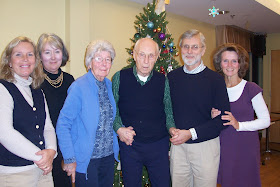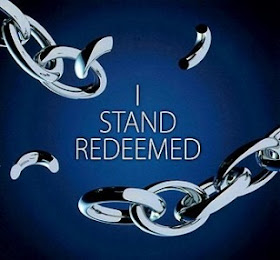Not so long ago, I went to my son's dealership for the unveiling of the new Jaguar. It was quite dramatic; the lights were dimmed, exciting music was beating to match the heartbeat of car afficianados, the turntable on which the car, veiled from our eyes, began to turn. Slowly, slowly the lighting over the car began to brighten and the satiny covering was slowly lifted. The music exploded, the lights came up to full brilliance and cheers erupted as the new car appeared. It was drama played out in the showroom.
And not so long ago, a lovely veiled bride, who is my daughter, walked down the aisle to be unveiled by her husband.

The veil represented the separation between them. She could not be fully known until she was unveiled. That moment when the groom lifts the veil and kisses his bride

is always the high point of the drama of any good wedding, and so it was that day.
Veils represent separation, secrets, hiding. The veil I want to contemplate is a bit different. It has a sinister quality to it, perhaps even ill-intent.
In Lewis' book
Till We Have Faces the veil is an ever-present character. Orual covers herself, believing that the veil will give her the power which her ugliness seemed to keep at bay. She also feels the need to protect her people from her ugliness.
It is this protecting people from herself that I find interesting. God veiled Himself until Jesus was born. He hid Himself from Moses. Though Moses said that he saw God, what he saw was a manifestation of God in the burning bush and the backside of God as he was hidden on the mountainside: "'
But,'He said, 'you cannot see My face, for no one may see Me and live.' Then the LORD said, 'There is a place near Me where you may stand on a rock. When My glory passes by, I will put you in a cleft in the rock and cover you with My hand until I have passed by. Then I will remove My hand and you will see My back; but My face must not be seen.'" Gen 33:22,23 Manoa, Gideon and Jacob declared that they, too, had seen God. Is there a contradiction if God says no one has seen His face but these men say they saw God!!
No! Have you ever heard anyone say, "I can see where this is going to lead us in the future."? Surely, this person is not clairvoyant!! What about "I see your father's face in your face." Or passing by a house that is designed by a student of the great architect, I have said, "I can see Frank Lloyd Wright in that." None of these is literally true. We see representations of the reality. But the reality is very clearly "seen" in the represemtation.
God "veiled" Himself in representation. But these are not the only examples of where He was veiled.
The Jerusalem temple, a replica of the wilderness tabernacle, had a curtain that was about 60 feet in height, 30 feet in width and four inches thick. Whether or not these are the same dimensions of the Tabernacle, the idea was one of separation, protection for man from a Holy God who could not look on evil and sinful man who could not look on Holy God. The priests, Holy of Holies and the Tabernacle itself, for that matter, were representations of God.
Am I saying that God was not present in the representation. I don't think so. I'm not going to be dogmatic here. I'll leave that to pastors and better students than I. I could go either way. Nevertheless, I see no contradiction in what God said and what these men said.
That was a rabbit trail.
Where does that leave us with Orual and God?
Orual unveiled herself. She was finally honest. She faced herself - pardon the pun. She was no longer a representation of herself as Ungit, her father (see other Till We Have Faces entries) but her real self - Orual. The unveiling - which was something the gods did TO her - led to salvation. (Interesting implications there for God's sovereignty in salvation.)
So too, did God's unveiling in Jesus lead to the final revelation of God's salvation plan. "If you have seen me, you have seen the Father."

God's plan was unveiled on the cross. The Tabernacle and the Law were part of the veil of God which, while not thrown away or invalidated at Jesus's unveiling, nevertheless were subsumed in His unveiling. The curtain, torn from Heaven to earth was God's final act of unveiling; once forbidden to enter, we are now invited into the Holy of Holies and to gaze on Him.
Psyche showed Orual what living faith would look like. Psyche was radiant when Orual visited her across the river. Psyche lived an unveiled life. It looked very different from Orual's in nature and quality. It was an untortured, hopeful life where she was free to long for her true home and the true Lover of her soul.
Jesus, in His new body, shows us what we shall be. That veil too, was torn away for us and we get a glimpse of what will be ours. No longer protected from God, we get to fully participate in the life of His Son and to know God the Father. Jesus is our Elder Brother. We are family with Him.
Let's hear it for the intentional unveiling of ourselves!
"Face" yourself before God. See yourself as you are. Then, if you are in Jesus, see yourself as God sees you. See God. See your future, unveiled in the Risen Jesus.




































 ...Tho' much is taken, much abides;
...Tho' much is taken, much abides;













